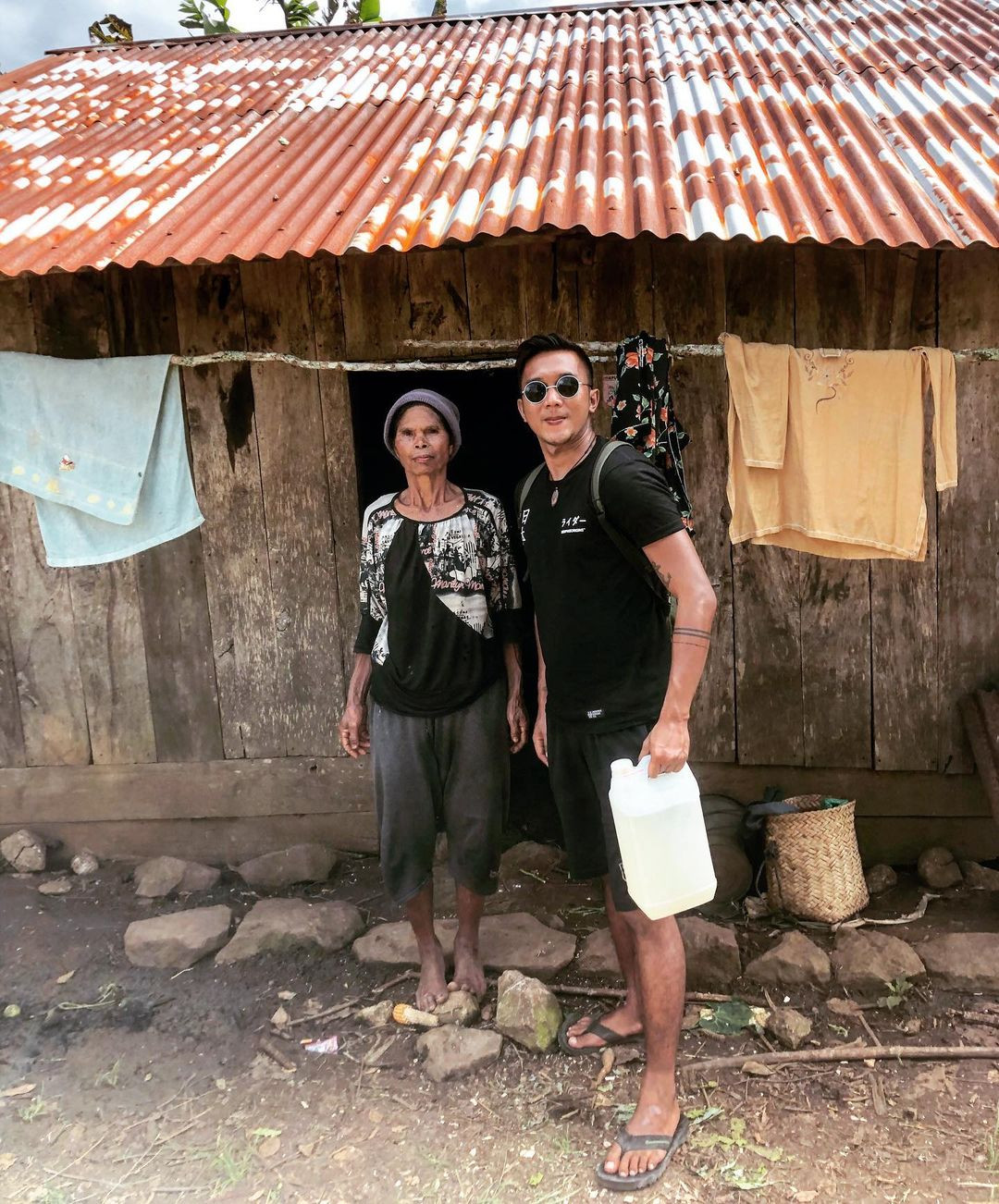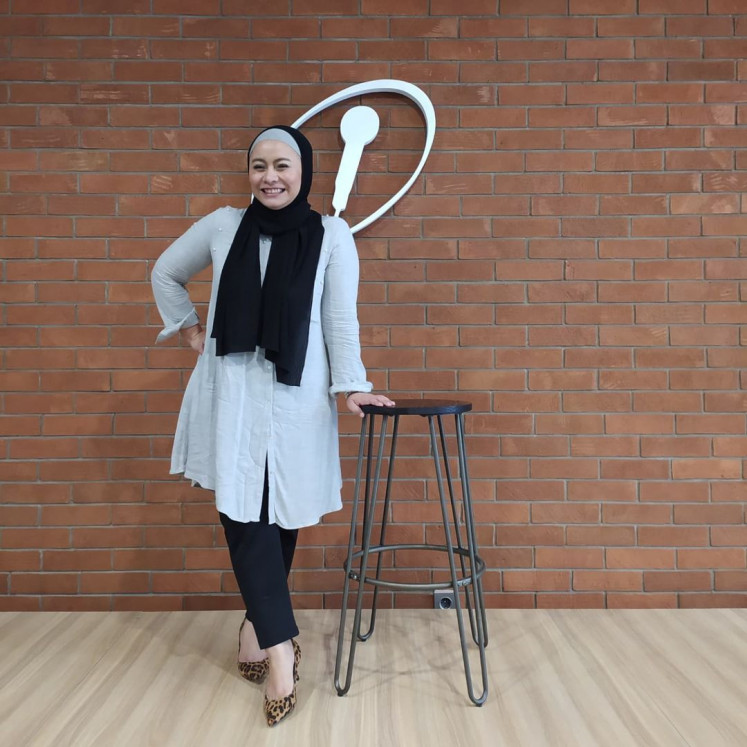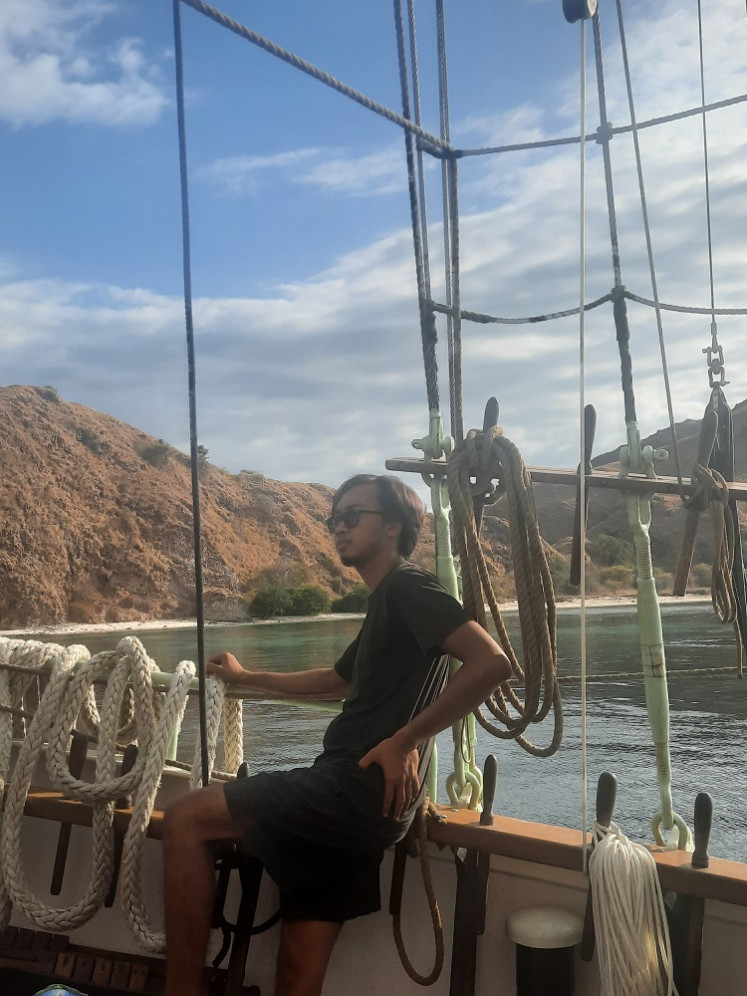Popular Reads
Top Results
Can't find what you're looking for?
View all search resultsPopular Reads
Top Results
Can't find what you're looking for?
View all search resultsRamadan among strangers: Fasting as a religious minority
While Ramadan is widely observed in majority-Muslim Indonesia, many Indonesian Muslims mark the holy fasting month as a religious minority in other regions of the country or other countries. Here, four people share their personal experiences.
Change text size
Gift Premium Articles
to Anyone
W
hile Ramadan is widely observed in majority-Muslim Indonesia, many Indonesian Muslims mark the holy fasting month as a religious minority in other regions of the country or other countries. Here, three people share their personal experiences.
What is it like to mark the most significant month in the Islamic calendar away in places where Islam is not the main faith? Indonesia may be majority Muslim, but many parts of the archipelago are dominated by other faiths, while a sizable number of Indonesians have studied abroad or are part of the overseas diaspora.
How has their stint away from their spiritual comfort zone changed their views on fasting and their relationship with their faith?
Ligwina Hananto
Financial trainer and stand-up comedian based in Jakarta
I studied in Perth, Western Australia, for four years, and never got a chance to come home for Ramadan and Idul Fitri. To make matters worse, it was the height of summer. The weather was bone-dry, around 40-45 degrees Celsius, and we fasted from 2 in the morning to 8 in the evening.
The first year was torture. I cried because I had to spend Idul Fitri away from my family, and I thought there’s nothing better than fasting at home.
I realized that fasting was a personal spiritual act. In Indonesia, it’s a massive cultural thing. But in Australia, they didn’t have any of those Ramadan rituals. They were just worried that I was fasting through the summer heat. They thought I would get dehydrated! When I explained to them that I was used to it, they calmed down a little bit.
Spiritual is personal: During her four years as a student in Australia, Jakarta-based stand-up comedian Ligwina Hananto came to realize that "fasting was a personal spiritual act". (Personal Collection/Courtesy of Ligwina Hananto)One year, I had the opportunity to attend a summit at Stanford University in the United States. The university knew I was Muslim and that I would be fasting. So at the hotel, they set aside a large room with dinner ready for every Muslim attending the conference. They also converted a gym into a makeshift prayer room for us, even providing a women-only prayer area. I was touched by their kindness. I didn’t expect to get this level of respect.
I missed the togetherness we felt back home during Ramadan. There are always memories of my grandmother’s house and familial warmth. But being abroad forced me to fast with self-awareness and determination. When I put my heart in it, all the difficulties just evaporated.
I learned that spiritual duties are personal duties. Even if people around me didn’t care that I was fasting and nobody would know if I skipped the fast, I would still do it. It stripped my intentions down. I was simply fasting to do what my God wanted me to do, even if nobody else around me was doing it [...]. For me, that was a beautiful thing.
Aldo
Entrepreneur who divides his time between Labuan Bajo, East Nusa Tenggara, and Denpasar, Bali
As a Muslim living among other majority religions, I enjoyed being an [ad hoc] ambassador for my religion. There’s a sense of dialogue and mutual learning when I tell [people of other religions] what I’m doing, why I’m fasting and its significance in my faith.
But I admit it felt weird at first. Back in East Java, where I’m from, my parents would wake me up in time for sahur [predawn meal] and our family would cook together for our iftar. The day would be filled with the sound of prayer emanating from minarets. Honestly, I miss that. When I’m away [in] another part of Indonesia that’s not majority Muslim, I had to do all those personal rituals alone.
Indonesia’s not just about Muslims. Christians, Hindus, Buddhists and so many more [followers of different faiths] are part of our society, and we have to find ways to respect and support each other, even in our spiritual activities. I think our beliefs are something we inherit from our ancestors and it’s the one we have to keep. But also, it’s important to not look at different beliefs and think, “Oh, that’s wrong.”
As a Muslim, it’s my duty to fast regardless of what’s going on around me. I don’t want to “blame” anyone for not fasting or for seeming to not respect my fast. What’s the point of fasting if there’s no temptation around you?
However, so far I found that people respect [my fast]. My former partner, who’s not Muslim, had a unique way of doing this: During Ramadan, she would deliberately wear more modest clothing, supposedly to not arouse me. I never asked her to do that [laughs]!
Fadhli Erlanda Arlan
Employee in Jakarta
Back in 2012, I spent Ramadan in Perth, Australia, [...] studying in Curtin University. There’s a small musholla [prayer room] provided by the campus, but because it was fall, the water was cold. Doing wudu [ablution] in the cold was tough! But surprisingly enough, generally it wasn’t that difficult to adapt. Nothing felt particularly weird, except that maybe I missed kolak [palm sugar dessert] from back home.
Everything went smoothly, even though the restaurants were open and almost nobody around me was fasting. I could wake myself up for sahur, find something to eat on my own when it was time to break my fast and do things as [they’re done].
There’s no reason to ask others who aren’t fasting to [refrain from] eating or drinking in front of me. They’re not the ones going through this journey. They have their own beliefs and conditions.
There’s a view that one of the journeys you take during fasting is to manage and control your inner lust. Well, I felt that there. Food was everywhere, but I had to hold back. If fasting is a test, I knew I was passing it.
Hardika Bagus
Seafaring employee based in Denpasar, Bali
I hail from Malang in East Java, where the weather is cool, so fasting in hot sunny Bali was difficult at first. I needed extra energy to adapt, because the heat automatically tests my faith [laughs]! The will to fast and engage in this spiritual act has to come from within, so external temptations are part of the journey. It’s the internal temptation that’s harder to deal with, but if you really want to fast, you go through with it. There’s no need for drama.
I miss the festivities back home. Mosques in Java, and Malang in particular, would all stock up and provide free takjil [breaking-of-the-fast snacks] for everyone, and we would gather at the mosques to eat and pray. Informal stalls would also pop up, selling snacks and drinks, and those stalls were a bane to my financial security! Then I’d get home, and my mother would be busy in the kitchen. I don’t know what she puts in her syrup, but it’s always amazing.
I miss the cultural activities that happen around Ramadan. Mosques or community centers would host tadarus [communal recitation of Quran], and we would sit outside talking or eating snacks. At sahur, kids would walk around the neighborhoods waking people up, and if we had spare change, we’d give them some.
Test of faith: Being a Muslim in Hindu-majority Bali has led Hardika Bagus to a shift in mindset and mutual respect with people of other religions. (Personal Collection/Courtesy of Hardika Bagus)That’s the vibe I missed when I moved to other parts of Indonesia where most of the population isn’t Muslim. There’s a celebratory mood that we don’t [get] here.
However, there’s a flip side to it. Because it’s such a cultural thing, people in Java are sometimes uptight about others who don’t fast. There’s a subconscious sense of superiority, like everyone on the island has to fast [...]. Over here in Bali, I learned to turn that mindset around.
Conversely, when I’m fasting, I should be more respectful of others who aren’t. And weirdly enough, people become more understanding. They ask for my permission to eat or drink in my presence, though I never asked them to.
We learned to respect each other without any compulsion or pressure. Fasting becomes a more personal thing, a more organic thing. I’m fasting, you’re not, but life goes on.
Personally, there’s a feeling of pride when I manage to fast among other people who don’t. My faith has been tested, but it has remained strong. It’s a change in mindset, but it’s worked so far.













